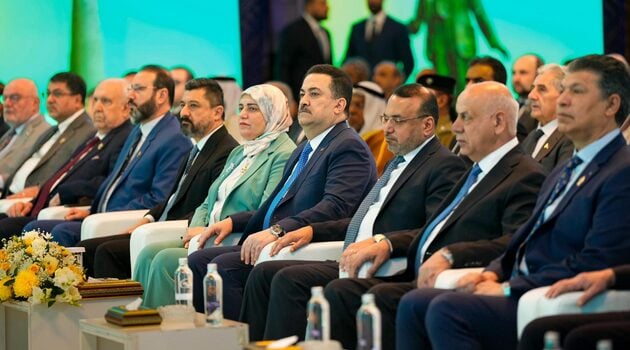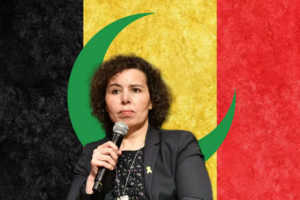
By John Lee.
Prime Minister Mohammed Shiaa al-Sudani on Saturday launched “Iraq Vision 2050: Towards Development and the Future” at a ceremony attended by government leaders, private sector representatives, diplomats, academics, and media professionals.
The official government press release did not make the plan available to the public.
Al-Sudani praised the work of the National Strategy Committee, which began shaping the framework in March 2023, focusing on building a productive society, a diverse and sustainable economy, smart governance, and balanced regional and international positioning, with youth as a central pillar. The plan relies on digital monitoring systems, long-term financing mechanisms, public-private partnerships, and international cooperation.
The government has partnered with the global consultancy McKinsey to design a comprehensive roadmap for restructuring Iraq’s economy, reducing reliance on oil, boosting private sector participation, and achieving sustainable growth. A separate consultancy contract was signed between the Ministry of Planning and KBR to implement key stages of the transformation.
Al-Sudani stressed that Vision 2050 will help Iraq anticipate and mitigate crises, restructure state institutions, and leverage technology and artificial intelligence to adapt to global changes. He underlined Iraq’s ambition to serve as a trade corridor for 20 percent of Asia-Europe commerce through the Grand Faw Port and the Development Road project, which is expected to generate 1.5 million jobs and raise self-sufficiency in food, water, and energy to 70 percent through green initiatives.
The Prime Minister concluded that Vision 2050 represents a national, inclusive effort by the state, private sector, universities, civil society, and youth, positioning Iraq as a productive force for peace, stability, and prosperity.
According to a statement from the Prime Minister’s Office, key highlights from the Prime Minister’s speech include:
The overall direction of Iraq Vision 2050 covers various sectors and addresses structural gaps and imbalances in state institutions.
Iraq Vision 2050 aims to prevent crises or mitigate their impact through proactive risk planning, as international institutions alone cannot ensure full response and protection.
Signing of a consultancy contract between the Ministry of Planning and KBR (a global consulting company for mega projects) to implement transformation stages under Iraq Vision 2050.
The comprehensive reform plan includes pathways for transformation, implementation frameworks, and the upcoming development roadmap, which will be submitted to the Council of Ministers for approval.
Iraq cannot continue relying solely on fossil fuels as the cornerstone of its national economy, especially with technological transformations and artificial intelligence reshaping the world.
Iraq is working to become a transit hub for 20% of Asia-Europe trade through the Al-Faw Grand Port and the Development Road project.
The Development Road project will provide 1.5 million jobs and achieve 70% self-sufficiency in food, water, and energy through sustainable green initiatives.
The government launched the Executive Policy Document for Strategy Governance, which clarified the overall direction of Iraq Vision 2050.
Iraq aspires in the coming decades to be liberated from oil dependency, with a diversified and stable economy.
The achievements in domestic and foreign policy have earned wide appreciation and recognition at both local and international levels.
(Source: PMO)





